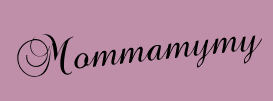My pediatrician praised me when she learned that I am still breastfeeding (and working a 9-5 job). She said breast milk is best for babies until two years but if you think you can go beyond that, then by all means, go! :)
When my friends learned that I am still breastfeeding, some of them got weirded out by it. They would claim, "Baka mahirapan ka ng awatin yan" or worst, "Spoiled yan paglaki". I mean, really? My baby's not yet two years old and I'm hearing these now? Honestly, I was a bit hurt because it's an option I wanted to do to make my child healthier. Zeke has not caught a cold ever since he was a baby so I can prove that breast milk really does wonder to a child's immune system.
I thought I was the only mother with this problem but when I logged in at Baby Center, I realized that I'm not the only one with the same sentiments! According to their team of experts, the trick is not to let others pressure you to stop; there are significant emotional and physical benefits to long-term breastfeeding that can't be ignored.
Here's a few more important things I've gathered through their site:
Why breastfeeding your toddler is a good idea
• Even though your child is now getting most of his nutrition from solid food, breastmilk still provides valuable immunities, vitamins, and enzymes. In fact, studies have shown that breastfed toddlers get sick less frequently than their peers do.
• As your child becomes more independent, breastfeeding can be an important source of reassurance and emotional support. The strong attachment your child feels with you while feeding will foster independence, not make him overly dependent or clingy as some may have you believe. There is a belief that "pushing" children away will help them develop a strong sense of self-worth and independence, but forcing a child to stop breastfeeding before he is developmentally ready will not necessarily create a more confident child; rather, it could make him more clingy.
• If your child is ill, breastmilk may be the only thing he can keep down. You'll feel better too, knowing that you're helping him fight off the illness.
• If you travel a lot, breastfeeding is a lot easier than carrying around milk or worrying about having to buy supplies at your destination. And when you're staying overnight in a strange place, the comfort of your breast may be the best way to ease your child's fears and make him feel more secure.
• Breastfeeding may delay the resumption of periods, a plus for anyone who dreads the thought of dealing with cramps and bloating again after a long break. But bear in mind that breastfeeding is not an effective form of birth control; it's a good idea to use a backup such as a condom.
• Weaning when your child is ready is more natural and less abrupt than picking an arbitrary end point. Breastfeeding a child beyond the first year was common around the world before the invention of infant milk substitutes.
Why breastfeeding your toddler can be a challenge
• Anticipate rude comments and criticisms from people who think breastfeeding an older child is strange. You may have to be more cautious about breastfeeding in public if you want to avoid the inevitable remarks. This can be difficult if your toddler lifts up your shirt in the supermarket and demands a quick snack.
• Breastfeeding can become a crutch. Your baby may start to rely on the breast when he's really just bored or it's the only way to get your attention. Engage your child in other ways -- toddlers are eager to explore the world and need stimulation to fuel their rapid development.
• Breastfeeding a toddler when you've got another baby on the way is possible, but some women find it too physically demanding. Unless you plan to continue breastfeeding your older child after the new baby is born, you may want to think about weaning her before the 'competition' arrives. However, many toddlers decide to wean themselves when their mother is pregnant, because the taste (and sometimes volume) of her milk changes during pregnancy.
Making extended breastfeeding work for you
• To avoid unsolicited comments and stares, you might find it easier to feed your child at home before heading out. Some mothers find it easier to breastfeed once in the morning and once at night and teach their toddlers to drink from a cup during the day.
• If you don't care what people think or say, then have some snappy responses ready when someone asks you the inevitable question: "Is she still feeding?" Sometimes a simple "yes" is the best conversation stopper. Or, the next time you're feeding in public and someone asks, "Are you ever going to stop breastfeeding?" say, "Yes, in about 10 minutes."
• You can teach your child a neutral code word for your breasts, so that when he starts demanding "nummies" or "mama" in the middle of a restaurant, no one will pay any attention.
So mommies, keep on breastfeeding your toddlers! Remember, bitter lang sila! LOL


No comments:
Post a Comment